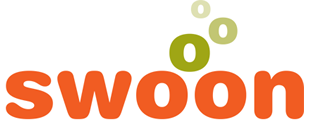When you think about your favourite leader or co-worker, what do you appreciate about them the most? What are the traits that stick out to you?
Chances are the first thing that comes to mind isn’t how savvy they are with Excel or the speed at which they handle a customer service call. Indeed, those things are important for getting the job done, but their soft skills are more likely to have a noticeable impact on you, your company culture, and your customers. Things like the way they listen to you, how they handle a difficult situation, or how they express their opinions in a meeting all likely have a more significant effect on your overall workplace culture.
Understanding how soft skills affect the workplace is helpful whether you’re a job seeker needing to explain your strengths or an employer looking for an ideal team member.
But what exactly are soft skills, and why do they matter? Let’s dig into the details.
What are soft skills?
Soft skills refer to the personal qualities that allow individuals to work effectively and collaboratively with others. While technical skills and experience are undoubtedly essential to do a particular job effectively, having strong soft skills is equally crucial. Here are what soft skills look like in action:
Communication Skills: Effective communication is vital to building relationships with colleagues, clients, and customers. Articulating ideas clearly, listening actively, and expressing themselves respectfully and concisely makes a huge difference in work relationships.
Problem-Solving Skills: Just showing up and doing whatever is in front of you won’t get you as far as if you have strong problem-solving skills. Identifying problems, developing creative solutions, and implementing them effectively is incredibly valuable, whether it is implementing a new process that increases efficiency or resolving a customer complaint positively and effectively.
Adaptability: With the constantly changing business environment, adaptability is vital. Individuals who can handle change and uncertainty and quickly adapt to new situations will thrive in the workplace.

Teamwork: Collaboration and teamwork are essential in most workplaces, and employers seek individuals who can work effectively with others to achieve common goals. Roles rarely require only one person’s input, so stepping up and being a team player is beneficial in almost every situation.
Leadership Skills: Even if you’re not in a management position, individuals who demonstrate leadership potential are always valuable. Whether it’s leading a team project, mentoring a new colleague, or simply taking the initiative to get a job done, leadership skills can be demonstrated (and cultivated) at every level.
Why do they matter?
While working with other people who have strong soft skills is simply a more pleasant experience in general, soft skills are also crucial for success in the workplace. Some of the main benefits include:
Boosting productivity: Soft skills such as teamwork, communication, and problem-solving can help increase productivity in the workplace. Employees who can work effectively with others and solve problems efficiently can help drive the business’s success.
Enhancing customer experience: Good communication, empathy, and adaptability can help create positive customer experiences. When employees connect with customers and provide a positive experience, it can lead to customer loyalty and repeat business.
Improving workplace culture: Respect, empathy, and teamwork (all important soft skills) can help create a positive workplace culture. Employees who feel valued and supported in the workplace are more likely to be motivated and engaged, leading to better job performance and job satisfaction.
How can you improve your soft skills?
Improving your soft skills can be lifelong; there are many ways to develop and enhance these skills in the workplace. Here are some ways to get started:
Practice Active Listening: Active listening is crucial to effective communication. To improve your active listening skills, make an effort to listen carefully to your colleagues and clients, ask questions to clarify their points, and repeat back what you have heard to ensure you understand them correctly.
Seek Feedback: One of the best ways to improve your soft skills is to seek feedback from others. Ask your colleagues, manager or mentor to provide feedback on your communication style, teamwork, problem-solving and other soft skills. Use this feedback to identify areas for improvement and set goals to work on them.
Develop Emotional Intelligence: Emotional intelligence is the ability to recognise and manage your own emotions and understand and empathise with the feelings of others. To develop your emotional intelligence, practice self-awareness by reflecting on your feelings and reactions, and build empathy by putting yourself in others’ shoes.
Take on Leadership Roles: Even if you’re not in a management position, taking on leadership roles in projects or initiatives can help you develop your leadership skills. Take the initiative to lead a team project, mentor a new colleague or take on additional responsibilities to build your leadership potential.

Participate in Professional Development: Attending workshops, seminars, and training sessions can help you develop and enhance your soft skills. Look for opportunities to learn new skills or expand existing ones in communication, conflict resolution, problem-solving and time management.
Practice Mindfulness: Mindfulness involves being present and fully engaged in the moment. You can do this with simple breathing practices, short meditations, or simply guiding your mind back to the present moment. Practising mindfulness can help you improve your focus and concentration, reduce stress, and improve your ability to communicate and collaborate effectively with others.
While all of this may feel like a lot to take on, starting small and choosing just one tactic to begin to improve your soft skills can make a difference quickly, both in how you feel and how you’re perceived in the workplace. As you continue to create awareness of your soft skills, it will become easier to improve and hone your soft skills and spot those traits in others.
In conclusion, there are so many benefits to both improving your soft skills and seeking out employees and team members who have strong soft skills as well. The overall culture of the workplace will improve, and your customers will see the benefits, too.

